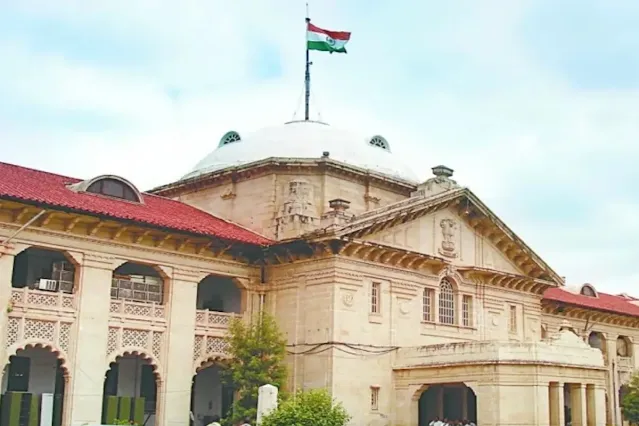In a significant move aimed at addressing the burgeoning backlog of cases, the Allahabad High Court has initiated a proposal to convert 12 non-working Saturdays into regular working days for the year 2025. This initiative is part of a broader strategy to expedite the disposal of long-pending cases, particularly those that have been awaiting adjudication for over five years.
On May 14, 2025, the Registrar General of the Allahabad High Court issued an official communication to the presidents and secretaries of the High Court Bar Association, the Advocates' Association, and the Oudh Bar Association (Lucknow Bench). The letter sought their opinions on the feasibility and implications of this proposal. The primary objective is to utilize these additional working days to specifically target and resolve cases that have been pending for more than half a decade.
This proposal is rooted in the recommendations outlined in Paragraph 49(ii) of the Policy and Action Plan of the National Court Management System (NCMS) 2024. The NCMS suggests that, in high courts with substantial case backlogs, at least one Saturday each month should be designated for hearing cases older than five years. The rationale is that, by dedicating specific days to address these longstanding cases, the judiciary can make significant strides in reducing the overall pendency.
The urgency of this initiative is underscored by recent observations from the Supreme Court of India. In February 2025, the apex court expressed deep concern over the mounting number of unresolved cases in the Allahabad High Court. It highlighted instances where writ petitions had been pending for over three decades, emphasizing the dire need for systemic reforms. The Supreme Court noted that each judge in the Allahabad High Court is burdened with approximately 15,000 to 20,000 cases, a workload that is unsustainable and detrimental to the timely delivery of justice.
Further compounding the issue is the significant shortfall in the number of appointed judges. Despite a sanctioned strength of 160 judges, the Allahabad High Court is currently operating with only 88 judges, including the Chief Justice. This deficit has been a longstanding concern, prompting various stakeholders, including bar associations, to call for immediate action to fill the vacancies.
The bar associations' responses to the proposal will play a crucial role in determining its implementation. Should there be consensus among the associations, the High Court plans to convene a full bench to deliberate on the matter further. The collaborative approach underscores the judiciary's recognition of the importance of engaging with legal practitioners in decision-making processes that directly impact court operations.
This initiative also reflects a broader trend within the Indian judiciary to explore innovative solutions to address systemic challenges. By extending working days and optimizing court schedules, the judiciary aims to enhance efficiency and ensure that litigants receive timely resolutions to their legal disputes.
In conclusion, the Allahabad High Court's proposal to declare 12 non-working Saturdays as working days represents a proactive step towards mitigating the longstanding issue of case backlogs. The engagement of bar associations in this process highlights the collaborative effort required to implement effective judicial reforms. As the judiciary continues to seek solutions to enhance its functioning, such initiatives may serve as models for other courts grappling with similar challenges.










0 Comments
Thank you for your response. It will help us to improve in the future.